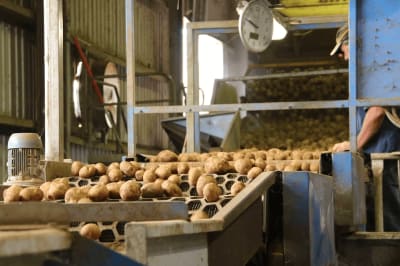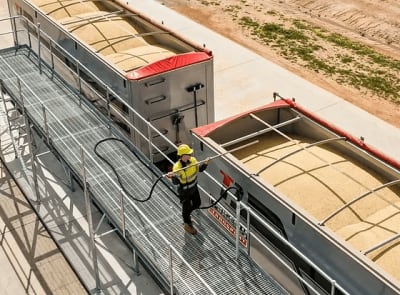ProAgni

If you didn’t have to use antibiotics to promote growth and feed efficiency in animals, why would you? This is the question that established ProAgni and led to the research and development of antibiotic and ionophore free ruminant feeds and supplements that improve animal performance through better feed conversion.
This case study was originally published in our report,
Funding the Future: Strategies to secure funding for Australian agribusinesses | Download the full report >>
Thinking outside-the-square drove Fiona Soulsby and her co-founders to begin a small start-up biotechnology company, ProAgni, in 2015 in Albury, NSW, that in its early days was regarded as something of an alternative agricultural venture.
More recently, that same innovative thinking – especially in regard to funding options – has transformed ProAgni into a mainstream livestock nutritional company attracting capital and winning awards and funding grants from around the world, now looking to raise $30m to build its first pilot-scale reverse encapsulation probiotic fermentation.
ProAgni is a business founded to counteract the global over-use of antibiotics in livestock feed, which has led to increasing resistance to popular antibiotics considered essential to human health.
Soulsby said she and her co-founders Rob Bell, Lachlan Campbell and Warren Lee, all then connected to cattle and sheep farming, started to ponder eight years ago if targeted probiotics – live microorganisms or bacteria that can feed and improve the gut microbiome – could replace the role of antibiotics and ionophores in livestock feed, and offer even better health and productivity outcomes to ruminants such as cattle and sheep.
Since those early days, it has been a long road to research and back their scientific theories in university tests, practical farm trials and intensive animal situations, as well as to establish a nutritional company that is now growing rapidly in both financial scale and popularity.
At the start, Soulsby, who is now ProAgni’s Chief Financial Officer, said the company found it difficult to attract and raise capital, partly because there was not a great deal of understanding of the biotech company’s complex work and partly because its “natural” focus was seen as too far outside mainstream agriculture.
It was left to the founders and local friends and family to initially fund early research.
A small amount of philanthropic backing followed, then two grants: one from industry body Meat and Livestock Australia’s Producer Innovation Program and another small grant from Impact Investing Australia.




